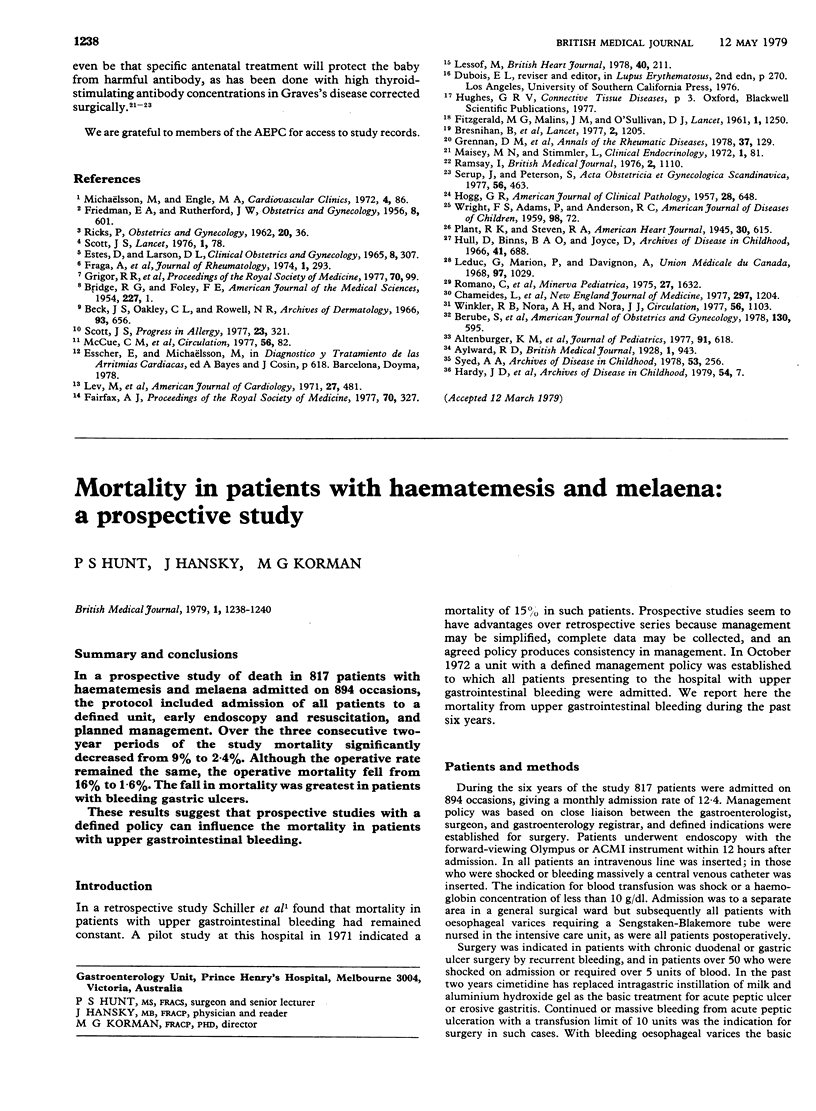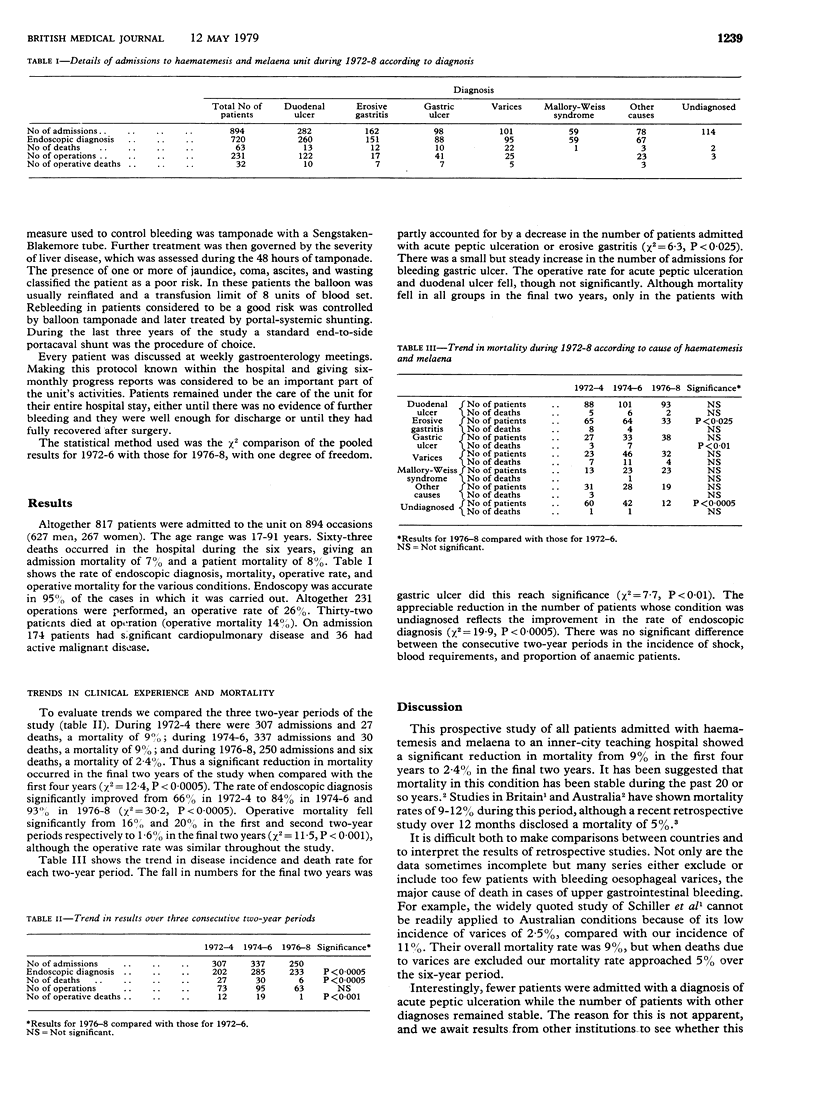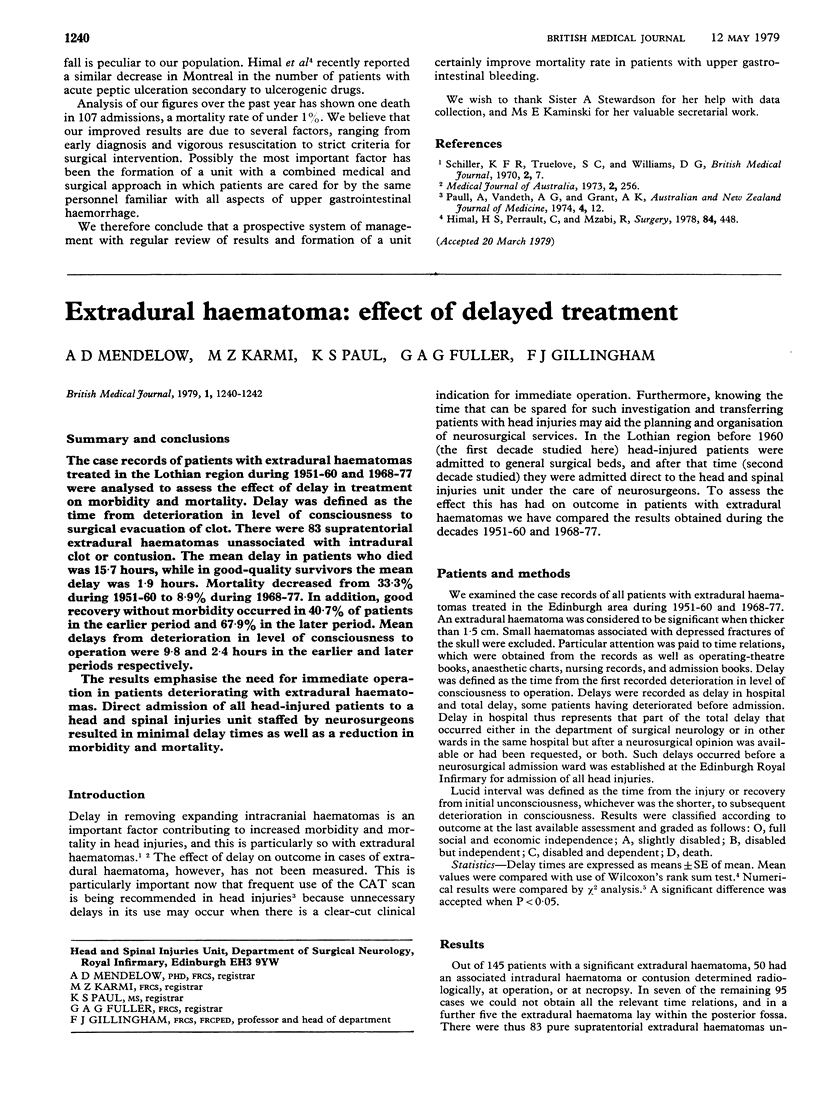Abstract
In a prospective study of death in 817 patients with haematemesis and melaena admitted on 894 occasions, the protocol included admission of all patients to a defined unit, early endoscopy and resuscitation, and planned management. Over the three consecutive two-year periods of the study mortality significantly decreased from 9% to 2.4%. Although the operative rate remained the same, the operative mortality fell from 16% to 1.6%. The fall in mortality was greatest in patients with bleeding gastric ulcers. These results suggest that prospective studies with a defined policy can influence the mortality in patients with upper gastrointestinal bleeding.
Full text
PDF


Selected References
These references are in PubMed. This may not be the complete list of references from this article.
- Himal H. S., Perrault C., Mzabi R. Upper gastrointestinal hemorrhage: aggressive management decreases mortality. Surgery. 1978 Oct;84(4):448–454. [PubMed] [Google Scholar]


